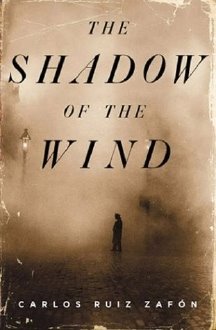It was no surprise that the discussion at The Travelling Book Café in Quebec wound round to language and how it affects our identities. Language enters conversations at every level here, and it is more complex than the simple divide between those who speak English and those who speak French. In this group of Anglophones, the majority of whom have lived in Quebec for decades, there were a few who claimed to be comfortable as minorities in this French-first province, but others still feel like outsiders. The sense of who they are has changed: since the society around them identifies them as Anglos, they have to consider what that implies, something that did not come up before they moved from Wisconsin or Saskatchewan, Poland, Maryland, Ontario.
As for French, having recently returned from the mother country that gave Quebec its langue maternelle, having learned that many of the first arrivals from France in the 1600's did not even speak French, but one of the regional languages of France at that time, such as Breton, Oc or Gallo, I saw how the French that has developed in Quebec could have been influenced by those languages, certainly was influenced by the classic French in novels that were required reading in school. It would be as if a group of Anglos were separated for generations from other English speakers, and clung to the diction of Shakespeare. Of course that changed with the influence of English-Canadian and American culture via mass media. Still, a grand controverse erupted over the comments, supposedly misinterpreted (but don't they always say that?), of the Montreal tennis star, Eugenie Bouchard, who said that while she fears she may have too much of an Anglo accent when she speaks French, at least she no longer sounds like a Québecoise. The newspaper columnist who responded to this young woman, whom he otherwise admires, was noticeably hurt. An accent reveals our origins, he wrote. We should never be ashamed of our origins, who we are, where we come from, even if some of the wonderful Quebec films that have been produced in the last few decades have to be subtitled for screening in cinemas en France.
Identity: a major theme in my novel
You Again, and the topic that elicits such personal revelations at The Travelling Book Café. A man who comes from North Carolina began the discussion with an appropriately general comment about how our identity is influenced by a web of things, including family, country, religion. A couple of women insisted that they are who they were born to be and have never questioned it, but I wonder: have any of us been so confident, life long, that we could avoid asking questions that get to the heart of our being? One good reason for keeping the Book Café to less than 20, preferably 15 people, is that everyone has a chance to speak, and after awhile, the more intimate stories begin coming out. One woman defines herself as someone who is not like the rest of her birth family, who are just plain mean, she said. Another one confessed that the culture she moved into when she came to Quebec with her husband caused her to fall into a depression she thinks stemmed from a loss of connection with self. A 20 year old admitted that while she attends school in the U.S., and is a U.S. citizen, she does not feel like an American. She has lived in many parts of the world with her travelling parents and assimilated aspects of each culture. She is now some kind of hybrid, she feels, no matter what her passport says.
Close to the age of my character Mattie, who tries to rescue his own identity by escaping the identity theft ring he was part of, this young woman's story was particularly poignant. Outwardly lovely and poised, she is searching for stable footholds as she moves forward into a career, into adult life. That won't be the end of it, though, at least it is not for most people, as Mattie's mother, another character in
You Again, demonstrates. Sense of self changes as life circumstances change. What happens when you learn that your mother has been lying to you about your true father? What image do you have of yourself when the world no longer reflects the beautiful woman/handsome man you used to be? How far down do you have to reach to find your essence? In what language do you talk to yourself?












